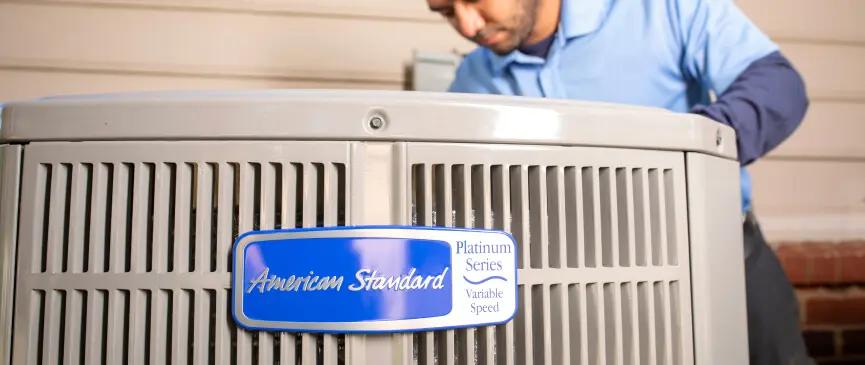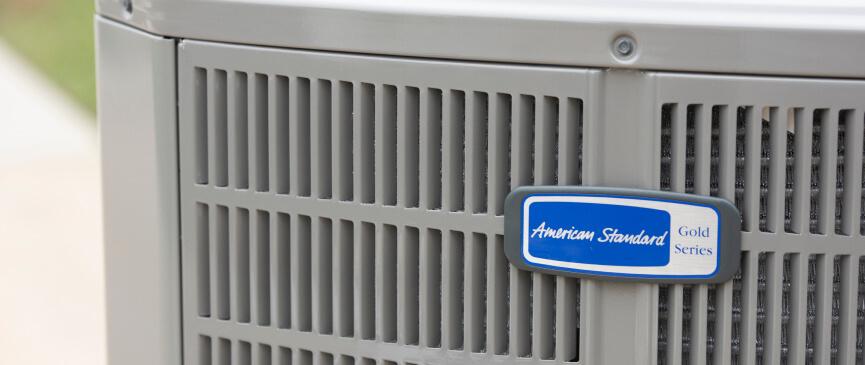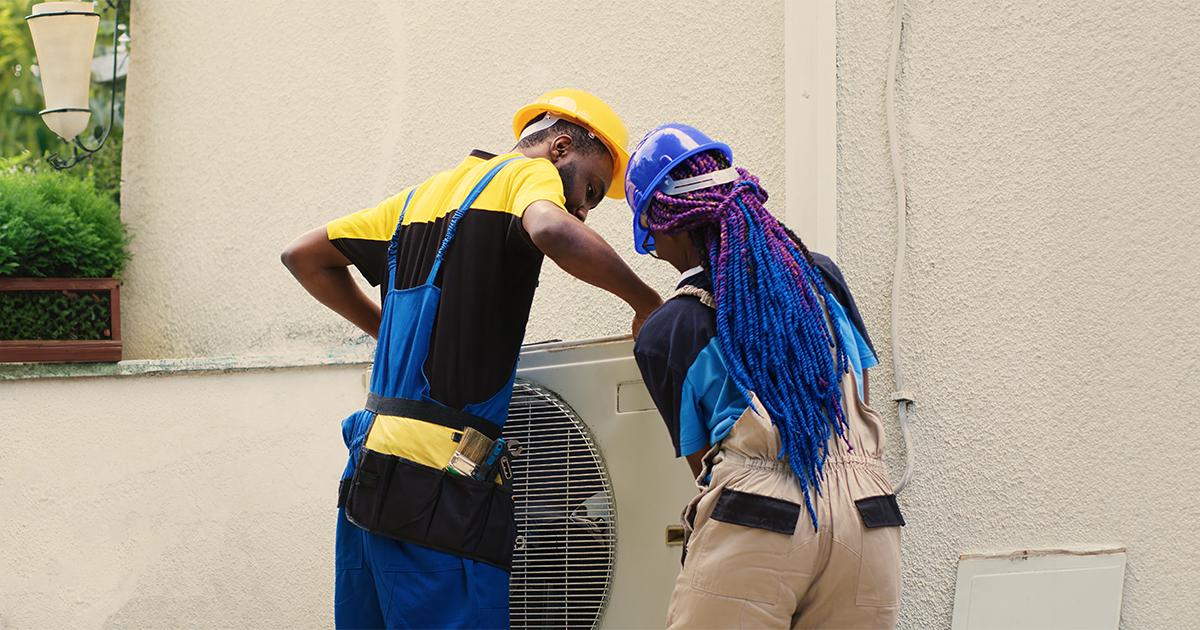Is a Zoned HVAC System Right for Your Home?
Learn about what a zoned HVAC system is, how it works, and if a zoned system makes sense for your home.

By Anne Fonda
Do people in your home argue about the temperature? Is someone always too hot or too cold? Is your upstairs hot in the summer no matter how low you set the thermostat downstairs? If you answered “yes” to any of those questions, you may want to consider an HVAC zoning system.
In this article, you’ll get answers to the most commonly asked questions, including:
Let’s get started.
What is HVAC Zoning?
HVAC zoning is a heating and cooling system designed with several different zones, each one linked to its own thermostat to give you full HVAC zone control. This allows you to set a specific temperature for each zone. A zone could be an entire floor of your home, or each room could be a separate zone, depending on your needs.
This is in contrast to a traditional HVAC system where you have one thermostat that theoretically keeps the same temperature throughout the house - even in unoccupied rooms.
How Does a Zoned HVAC System Work?
Together with an HVAC professional, you divide your home into two or more zones. With American Standard Link Zoning and AccuLink™ Zoning Systems, you can have 6-8 separate zones. A matched system with an air conditioning unit or heat pump paired with a variable-speed furnace or variable-speed air handler is required for our zoned systems.
Both systems work with multiple temperature sensors, either wireless or wired to a control panel, and a series of exclusive motorized modulating HVAC dampers. Dampers are metal plates inserted into the ductwork. These dampers can be installed in new or existing ductwork.
Zone temperature sensors and humidity sensors provide data to the system controller, prompting changes in the heating or cooling based on the schedule you set. The system controller signals the dampers to open or close partway or completely to redirect conditioned air where it’s needed. This keeps temperatures and humidity levels consistent during every season.
By delivering warm or cool air to the rooms that need it, these systems eliminate temperature fluctuations during a 24-hour period and maximize the consistency of comfort year-round. You can set higher or lower temperatures or close the dampers leading to unoccupied rooms such as a guest room.
Plus, the American Standard Home App gives you the power to conveniently control each of the zones from the palm of your hand.
What Are the Benefits of an HVAC Zoning System?
There are a lot of benefits to having an HVAC zoning system. They include:
- Improved energy efficiency and cost savings
- Reduced wear and tear on HVAC equipment
- Enhanced temperature and humidity control
- Air cleaning cycles available
- Increased comfort
- Less arguing over the temperature
When you have a standard HVAC system, if one room feels too hot or too cold, you might bump up or turn down the thermostat. But doing so affects the temperature in your whole house. That can needlessly increase your energy costs. According to the U.S. Department of Energy (DOE), a properly designed and installed HVAC zoning system may result in improved energy efficiency and cost savings of as much as 30% on your heating and cooling bills.
Since a zoned system isn’t working hard to heat and cool your entire home at all times, you will have reduced wear and tear on your HVAC equipment. That can save you money on repair costs.
In American Standard zoning systems, the Quick Clean and Allergy Clean air cycles provide improved indoor air quality for allergy sufferers and others. These boosted air cleaning cycles also deal with any household odors and can be set for a few hours or an entire day.
And increased comfort, enhanced control, and less arguing? Priceless.
When Does AC Zoning Make Sense?
By now you have a feel for when a zoned system makes sense. Scenarios where AC zoning/HVAC zoning can be beneficial include:
- A multi-story home
- A very large home with multiple wings
- You have high ceilings
- You have large windows
- Your home has a basement or attic
If the upstairs is always hot in the summer, adding air conditioner zoning that lets you better control the upstairs temperature can help everyone sleep better.
A very large home can benefit from HVAC zoning or even more than one HVAC system to provide the same level of comfort in every room in the house.
If you have high ceilings or even a cathedral ceiling, hot air will rise. While this might be beneficial in the summer, it can leave you cold in the winter. Separate zones can help alleviate the problem.
Large windows that let in a lot of sun can superheat a room. A separate zone for that room allows you to better control your comfort.
If you have a basement that is naturally cooler in the summer, do you really need to be air-conditioning it? With a standard system and a basement with ductwork, you don’t have a choice. Making your basement or attic a separate zone will keep the temperature and humidity at a comfortable level while providing energy savings.
How Many Zones Do I Need?
The answer to this question will be different for every homeowner. The best way to find out is to consult with one or more HVAC companies who are experienced in designing and installing zoning systems.
Factors to consider when determining the number of zones include:
- The size of your home
- How many levels the home is
- Whether this is a new build or a retrofit
- Where the problem areas are
- And more, depending on your home and your heating and cooling usage
For example, for a two-story home, a dual-zone HVAC system might be sufficient. For a larger home, a multi-zone HVAC system might be the best solution.
What Does an HVAC Zoning System Cost?
The initial cost of installing an HVAC zoning system will exceed that of installing a non-zoned HVAC system. There can be increased labor as these systems are more complicated to install, including the wiring, multiple thermostats, sensors, the system controller, and dampers. But keep in mind that you will have long-term savings.
The most cost-effective time to install an HVAC zoning system with HVAC zone dampers is during new construction. Your installed cost will also vary depending on how many zones you have.
Existing Homes
While it is possible to retrofit a standard ducted system and convert it to a zoned HVAC system, the cost will be higher, as the technician will need to redo the wiring, potentially cut into walls to install dampers, etc. They may need to replace your HVAC equipment at the same time for maximum efficiency.
For an existing home, another option for a zoning system might involve adding a ductless mini-split or muli-split system to heat and cool a particular part of your home. Ductless air conditioning can help cool a bedroom or other room that heats up more than other rooms.
However you do it, putting a zoned HVAC system in your home should help increase your home's comfort and energy efficiency. Just be sure to work with HVAC professionals who are experts in this area and will ensure the system is designed and installed correctly.
For accurate pricing, reach out to schedule a one-on-one consultation.
Consult with HVAC Experts for Advice
Interested in learning more about the benefits of a zoned HVAC system and how to implement it in your home? Find your local American Standard dealer near you who can provide system and product recommendations that will keep you and your family comfortable for years to come. For over 100 years, we’ve designed and manufactured some of the most awarded, well-engineered heating and cooling equipment and earned a reputation for doing things right.
Anne Fonda, Content Writer
A Content Writer with Trane Technologies, Anne Fonda researches topics and writes for Trane® and associated residential HVAC brands. She works in collaboration with Trane Technologies subject matter experts, offering easy-to-understand, informative content on complex topics. Her goal is to help consumers make informed decisions on the products and services they need.
She has written for HVAC and other service provider websites for over 16 years. Before transitioning to web content writing, Anne had a 14-year stint as an award-winning journalist. She graduated cum laude from the University of Missouri-Columbia School of Journalism.
When she’s not working, Anne enjoys playing word games, reading, gardening, spending time with family, and visiting gardens and museums.
Expert review by David Lothe Product Manager, Communications and Accessories, System Controls



